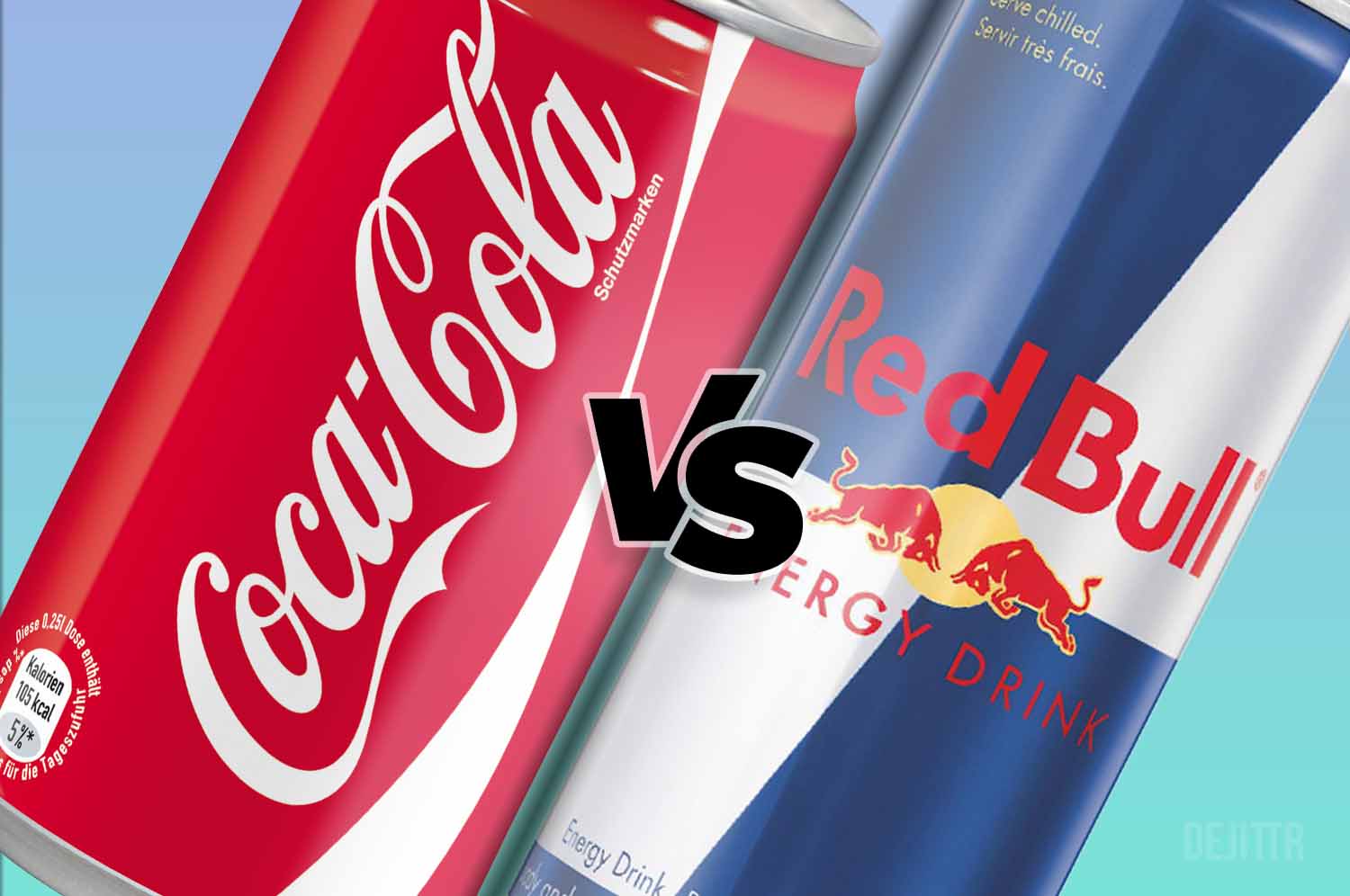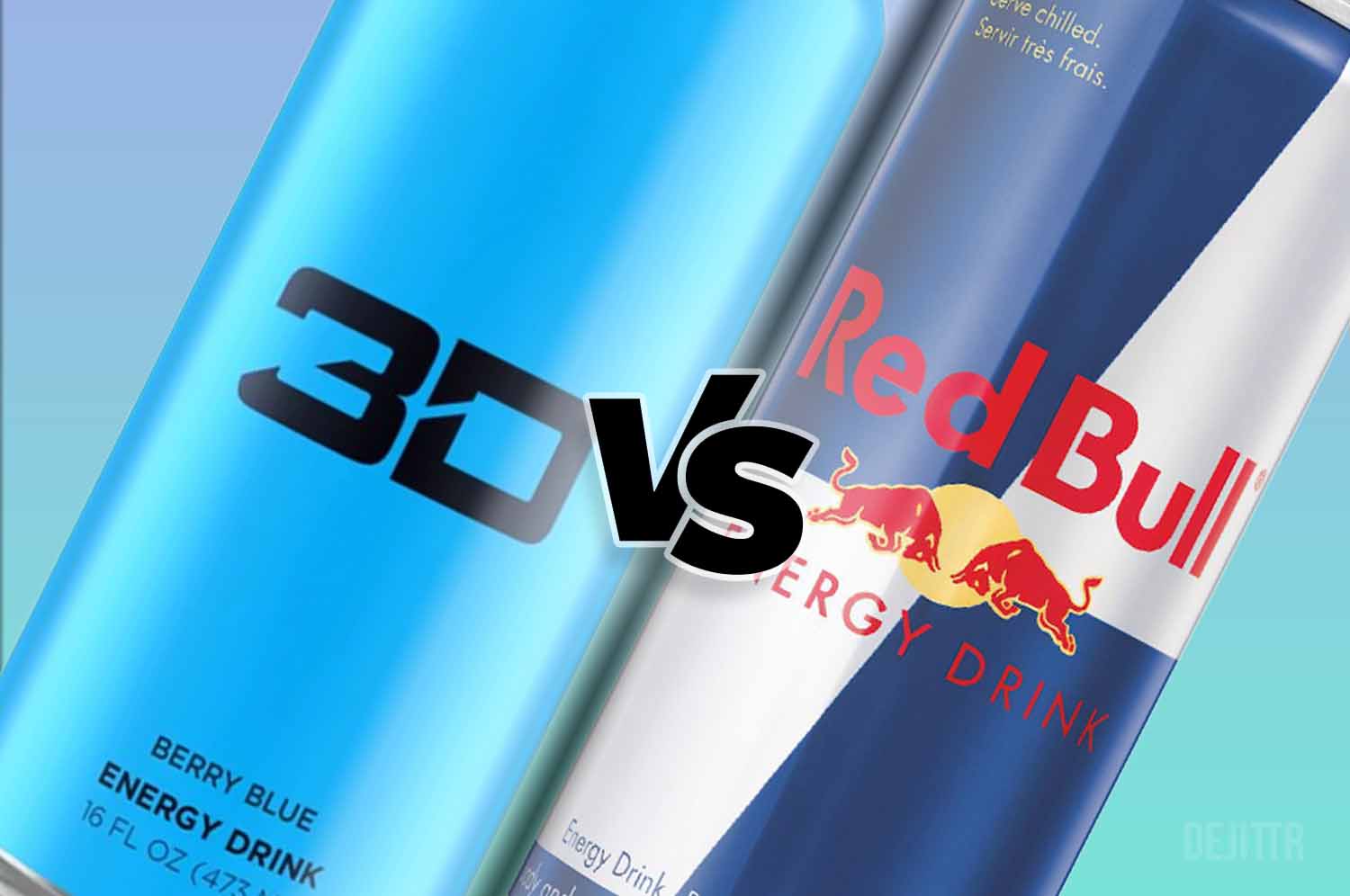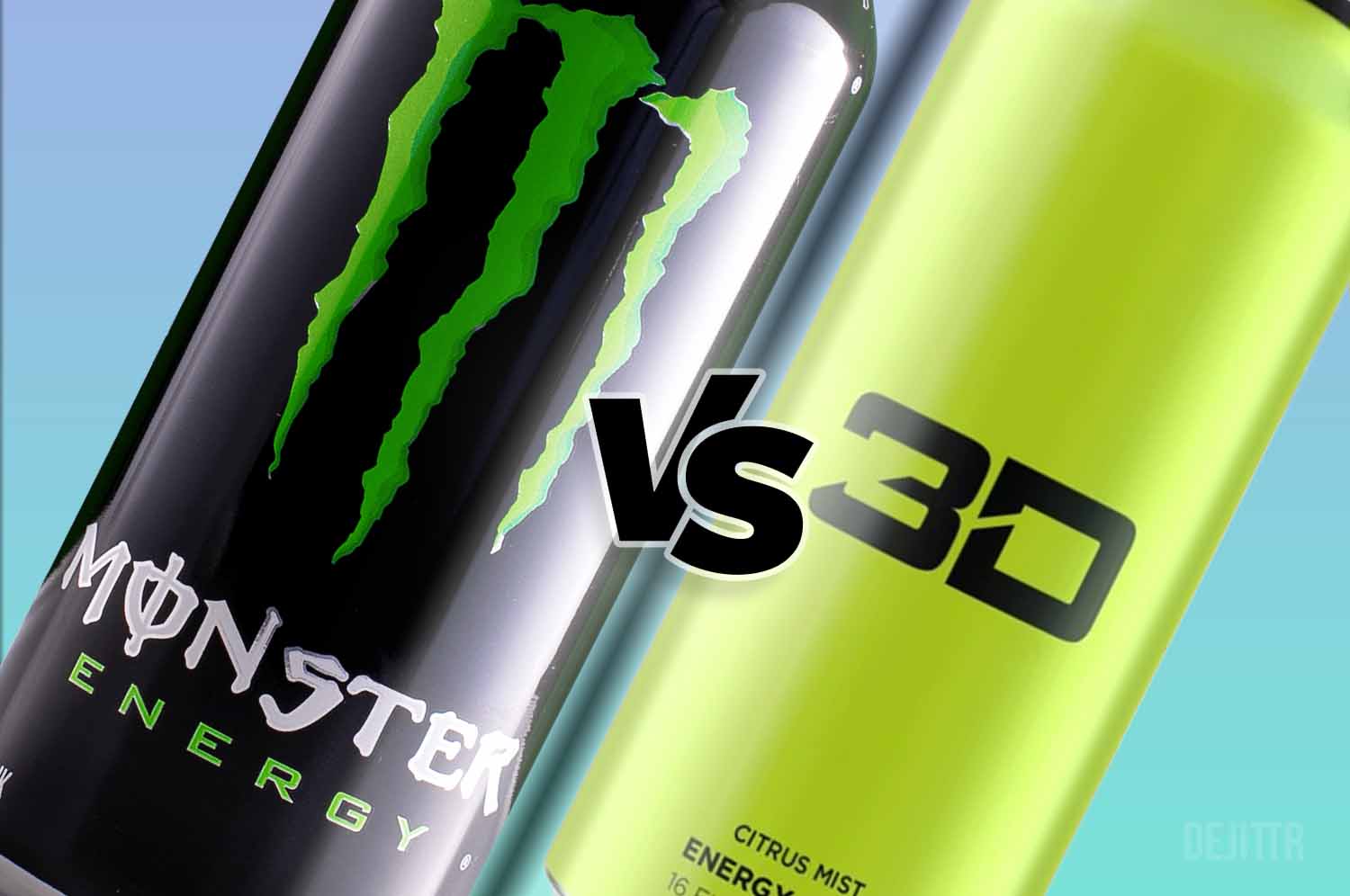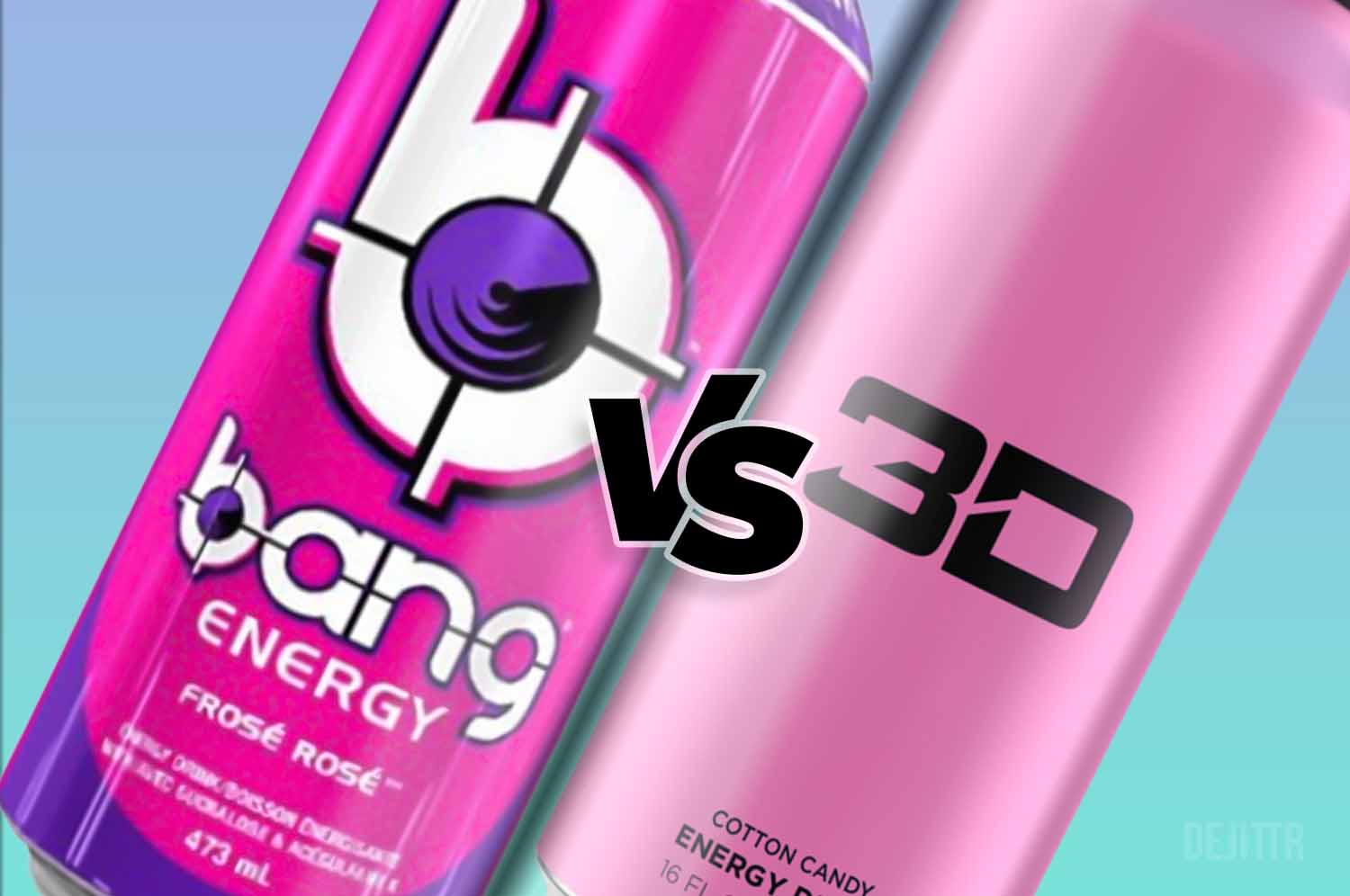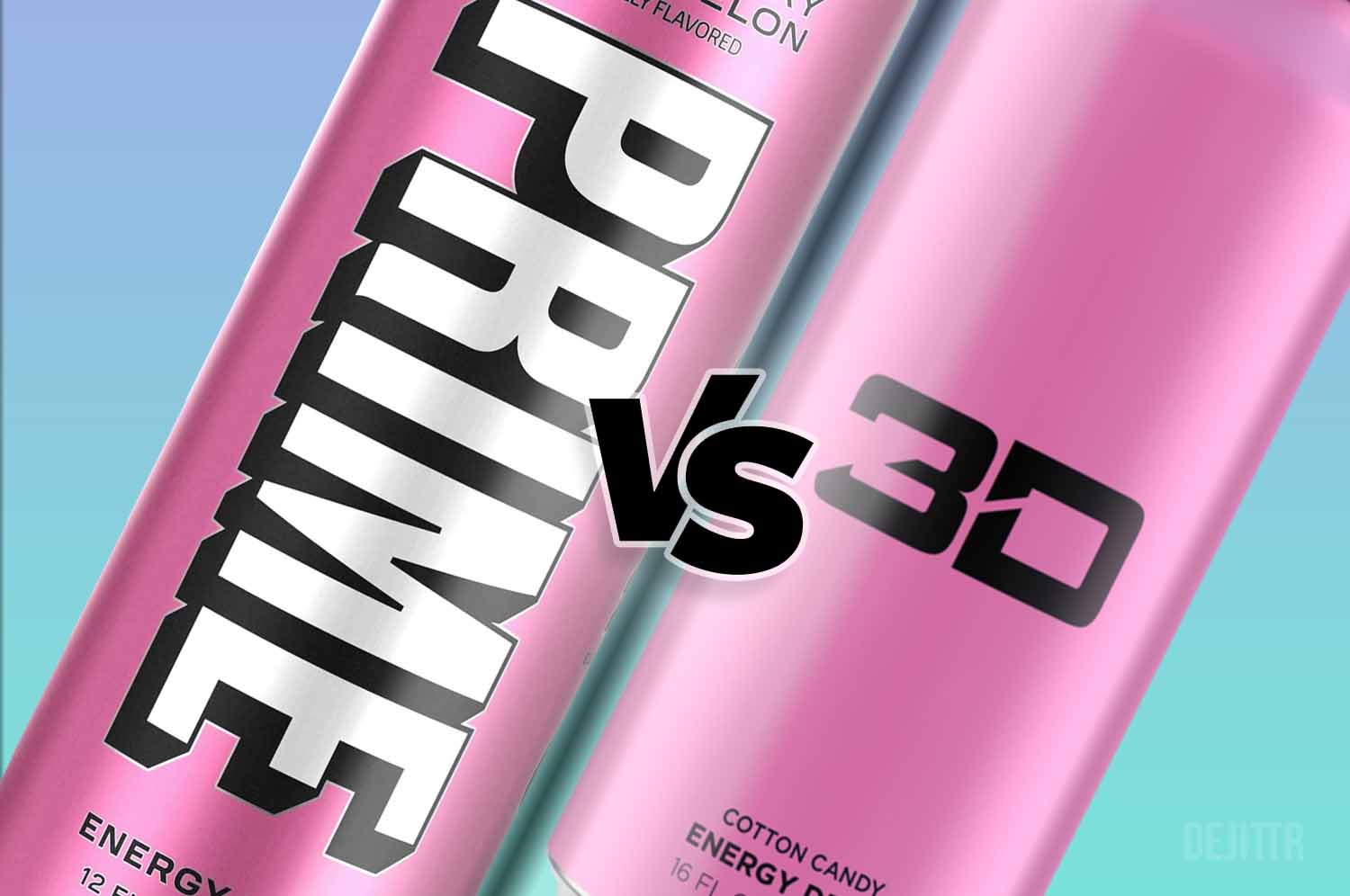Red Bull and Coca-Cola: One’s an energy drink that promises to turbocharge your day, the other a soda that’s as American as apple pie. But don’t be fooled—this isn’t just a face-off between caffeine and carbonation.
It’s a deep dive into the ingredients that fuel us and the cultural imprints that define us. So, whether you’re a wing-seeker or a pop aficionado, prepare to be enlightened. We’re cracking open the real differences that set these liquid legends apart.
Key Takeaways:
Red Bull has roughly three times more caffeine by volume compared to Coca-Cola but has slightly less sugar. While subjective, many people prefer the taste of Coca-Cola over Red Bull, probably because of its higher sugar content.
I know this is not a true apples-to-apples comparison, but there are many similarities we can discuss. This article will discuss why Coca-Cola is more popular than Red Bull, the pros and cons of both beverages, and what makes these two drinks juggernauts in the energy drink and soda world.
How Many Cokes Equal a Red Bull?
When comparing these products, it is essential to consider which packaging and formula of the beverages you are planning to consume. There are various sugar-free options, different flavor combinations, and several different sizes to choose from when buying Red Bull or Coke.
Roughly three 355 ml (12 fl oz) cans of regular Coke equal one 355 ml (12 fl oz) can of Red Bull in terms of caffeine content. On the other hand, the sugar content of one can of Red Bull almost equals one can of Coca-Cola.
There is also Taurine in Red Bull. Some studies indicate that the combination of caffeine and Taurine can produce extra energy. Still, there is not enough research yet to definitively say this is true, but it is one thing to consider when asking yourself how many cokes equal a Red Bull.
Nutrition Facts
| Comparison | Coke | Red Bull |
| Serving Size | 12 fl oz (355 ml) | 16 fl oz (473 ml) |
| Calories | 140 | 210 |
| Sodium | 50 mg | 190 mg |
| Total Carbs | 39 g | 54 g |
| Total Sugar | 39 g | 50 g |
| Vitamin B6 | – | 470% DV |
| Vitamin B12 | – | 160% DV |
| Niacin | – | 190% DV |
| Caffeine | 57 mg | 151 mg |
Red Bull vs. Coca-Cola: Ingredients
Coca-Cola Ingredients
| Ingredient | Function in Beverage | Effects on Body |
|---|---|---|
| Carbonated Water | Provides fizziness | Hydration, but carbonation can cause bloating |
| High Fructose Corn Syrup | Sweetener | Can lead to weight gain, diabetes |
| Caramel Color | Adds color | Generally considered safe; some concerns about certain types of caramel color |
| Phosphoric Acid | Adds acidity | Can weaken tooth enamel |
| Natural Flavors | Adds flavor (secret recipe) | Unknown due to proprietary nature |
| Caffeine | Stimulant | Increases alertness, can cause insomnia |
Red Bull Ingredients
| Ingredient | Function in Beverage | Effects on Body |
|---|---|---|
| Carbonated Water | Provides fizziness | Hydration, but carbonation can cause bloating |
| Sucrose and Glucose | Sweeteners | Quick energy, but can lead to weight gain |
| Citric Acid | Adds acidity | Generally safe, but can erode tooth enamel |
| Taurine | Amino acid | May improve athletic performance, though evidence is limited |
| Sodium Bicarbonate | pH balance | Can act as an antacid |
| Magnesium Carbonate | pH balance | Essential mineral, generally safe |
| Caffeine | Stimulant | Increases alertness, can cause insomnia |
| Niacinamide (Vitamin B3) | Nutrient | Helps convert food into energy |
| Pantothenic Acid (Vitamin B5) | Nutrient | Helps convert food into energy |
| Vitamin B6 | Nutrient | Important for brain development and function |
| Vitamin B12 | Nutrient | Important for nerve function |
It’s worth noting that the “Natural Flavors” part is where the secret recipe, often referred to as “Merchandise 7X,” comes into play. This mixture of oils, flavors, and perhaps even spices is known to only a few people within the Coca-Cola Company.
Which Has More Sugar, Red Bull or Coca-Cola?
Red Bull has slightly less sugar by volume than Coca-Cola. A 355 ml (12 fl oz) can of Coca-Cola contains 39 grams (1.32 oz) of sugar, compared to 37 grams (1.25 oz) in the same-sized Red Bull.
However, the most popular size of Red Bull, 250 ml (8.5 fl oz), contains only 27 grams (0.95 oz) of sugar. This is something to remember when comparing how one can of Redbull compares to one can of Coke.
Doctors and scientists have learned a lot about the health effects of added sugar in drinks in recent years. The FDA recommends no more than 50mg of added sugars daily for the average person. So which has more sugar, Coca-Cola or Red Bull?
Red Bull and Coke are now available in various flavors and sizes. Because sugar can lead to diabetes and other health issues, some people choose artificial sweeteners. There are sugar-free options for Red Bull and Coca-Cola if you want to avoid the added sugar altogether.
Some of the sugar substitutes are known to have health risks, and there is not enough research indicating if these are genuinely safer alternatives. So be mindful of that when choosing these alternatives over natural sugar.
While Red Bull has less sugar than Coca-Cola, it is essential to ask if this is still a reasonable amount of sugar compared to other common beverages. The chart below helps explain how much sugar is found in the various common serving sizes of each beverage.
The Effects Of Sugar
Red Bull and Coke contain a relatively high amount of sugar. Because of this, it may leave consumers wondering what the effects of sugar are and are there alternatives to Red Bull and Coca-Cola with sugar?
According to Harvard Medical School, too much added sugar can lead to various health problems. It is also a tough statistic to put a number on because a recommended daily value of added sugar cannot easily be quantified. Added sugar is not something that humans have been exposed to for a very long time so scientists are still trying to determine how much is too much.
There are, however, variants of Red Bull and Coca-Cola you can buy that do not have added sugar. These include artificial sweeteners that allow you to enjoy the beverages without drinking traditional or added sugars.
Alternatives to Regular Coke include Diet Coke and Coke Zero. Meanwhile, if you are craving an energy drink but want to reduce your sugar intake, you may try Red Bull Sugarfree or Red Bull Zero.
It is important to understand that despite zero sugar, these sugar-free alternatives use artificial sweeteners, such as aspartame and potassium. These substances mimic the flavor of sugar, bringing the alternatives as close to the original in flavor as possible.
Some studies show that aspartame can pose potential risks to some people. However, more studies need to be done as the food industry still widely uses the substances.
Which Has More Caffeine, Red Bull, or Coca-Cola?
Red Bull has more caffeine than Coca-Cola. A 355 ml (12 fl oz) can of Red Bull has 102 mg of caffeine compared to 34 mg in a 355 ml (12 fl oz) Coca-Cola can. Even the common serving size of Red Bull at 250 ml (8.45 fl oz) has 80 mg, which is more than twice the caffeine content of a regular Coke.
Because caffeine has various potential adverse effects when over-consumed, it is vital to monitor consumption. Too much caffeine can lead to problems sleeping, anxiety, and other issues with the nervous system.
While Coca-Cola has significantly less caffeine than Red Bull, it is still necessary to confirm whether it is safer. Having less caffeine than Red Bull doesn’t mean it poses fewer risks. Remember that Coca-Cola contains relatively more sugar.
The chart below helps explain how much caffeine is found in different common serving sizes of each beverage.
| Type Of Beverage | Size Of Can | Amount Of Caffeine |
| Coca Cola | 250ml (8.45 fl oz) | 24.3 mg |
| Red Bull | 250ml (8.45 fl oz) | 80 mg |
| Coca Cola | 355ml (12 fl oz) | 34 mg |
| Red Bull | 355ml (12 fl oz) | 113.529 mg |
| Coca Cola | 473ml (16 fl oz) | 65 mg |
| Red Bull | 473ml (16 fl oz) | 160 mg |
Caffeine in Red Bull vs. Coffee
Red Bull has a reputation for having a lot of caffeine, but it has considerably less than a cup of black coffee!
An average 237 ml (8 fl oz) cup of home-brewed black coffee contains roughly 95 mg of caffeine, which is relatively more than the 80 mg in the same serving size of Red Bull.
On the other hand, a cup of café-bought coffee contains much more caffeine than a Red Bull. An article by Business Insider pointed out that a 355 ml (12 fl oz) Starbucks coffee contains 260 mg of caffeine. The amount is more than three times as much as the amount of caffeine in a can of Red Bull!
So while Red Bull has much more caffeine than Coca-Cola, it is not necessarily excessive compared to other common caffeinated beverages.
Every wonder is whether Red Bull is Halal or vegan. Well, you’re in luck in a recent article I discuss this topic.
How Much Caffeine Is in Red Bull 250 ml (8.45 fl oz) vs. 500 ml (16.91 fl oz) Can?
Red Bull comes in a variety of sizes and flavors now. The most common sized cans you will find include 250ml and 500ml cans. When choosing which size you will buy, one of the most common questions will be how much caffeine is in the different sizes.
A 250 ml (8.45 fl oz) can of Red Bull has approximately 80 mg of caffeine, while a 500 ml (16.91 fl oz) can have about 160 mg. An average adult should not exceed 400 mg of caffeine per day, so the amount of caffeine in either serving of Red Bull is way below the threshold.
Although a can of Red Bull does not exceed the recommended limit of caffeine intake per day, every person has a different tolerance level to the substance. That is why it is important to take the beverage in moderation.
If you need to satiate your daily caffeine needs, opt for the smaller serving size (250 or 8.45 fl oz). There are also alternatives available on the market like different teas, natural energy drinks, and sports drinks that contain less or no caffeine.
The Effects Of Caffeine
Caffeine, while having the reputation of being a great way to help keep you awake, does come with some downsides. While it is safe in moderate consumption, health risks are associated with too much. So people may wonder what are the effects of caffeine and are there alternatives?
Some of the downsides of taking in too much caffeine include:
- feeling shaky
- increased heart rate
- nervousness
- inability to sleep
- and becoming dizzy
- stomachache leading to either diarrhea or constipation
- increased frequency of urination
These reasons explain why it is important not to consume too much caffeine, especially on a daily basis.
The good news is there are alternatives to caffeine, and Coca-Cola and Red Bull both have caffeine-free options. This is great news for people that love either brand but want to avoid consuming too much caffeine.
Taste Showdown: Red Bull vs. Coca-Cola
Flavor is one of the most important factors to consider when selecting a soft drink. These factors lead to the question of which beverage tastes the best? Is it Coca-Cola or Red Bull?
That depends on the consumer. For years, Coca-Cola was the most popular soft drink on the planet. Coca-Cola is a time-tested classic that conjures nostalgia and delight for millions of people worldwide.
However, Red Bull has gained popularity over the past two decades and moved from a niche product to a more mainstream option. They are incredibly delicious on their own, but they have also become iconic mixers in the cocktail world.
Over the years, Coke and Red Bull have released a wide variety of products, including many featuring sugar substitutes and various flavors. These flavors change based on the type of sugar substitutes, or the other natural or artificial flavors that have been added. But the originals are still the most popular when people think of both brands.
Most people would say Coca-Cola is more versatile for mixing and consuming food. However, Red Bull’s flavor is undeniably unique. The answer on which tastes better is really up to you as the consumer.
Final Thoughts
Red Bull and Coca-Cola are two of the most popular non-alcoholic beverages globally. Both are notable for their flavor and ability to perk people up with their ingredients, including sugar and caffeine.
Red Bull does contain more caffeine than Coca-Cola. However, contrary to popular belief, not excessive amounts could be a cause for alarm. The only risk is when consumers drink too many cans at once.
When choosing between Red Bull and Coca-Cola, knowing your health limits and sensitivity to sugar or caffeine is always best.


